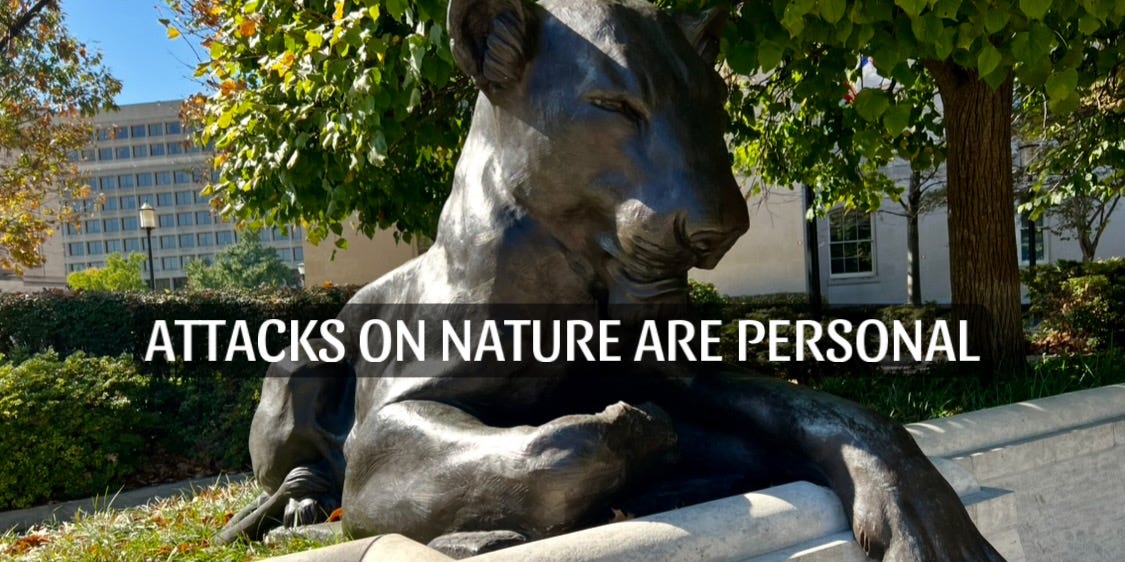We Are Nature: Reclaiming Our Place in the World
One mental switch that will spark your environmentalism
During the comment period for the Roadless Rule, someone confessed to me that she didn’t know if she had anything to say, because although she cared, she wasn’t an “outdoorsy” person. She appreciates nature profoundly, but still does not feel confident speaking to how the preservation of our wild spaces affects her personally.
I know that she is not alo…



